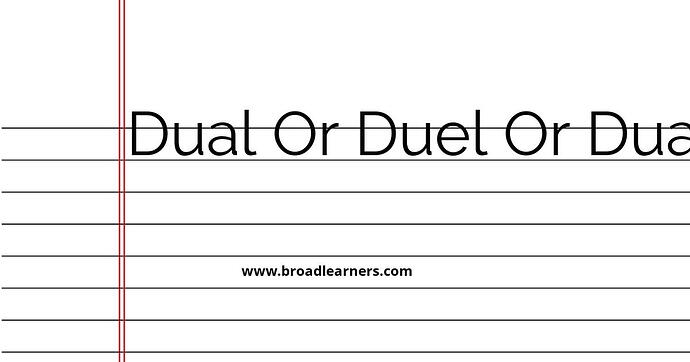'Dual', 'duel', and 'dual' are three commonly confused words in English grammar. Understanding the difference between 'dual', 'duel', and 'dual' is important to use them correctly in written and spoken English.
'Dual' is an adjective that means having two parts or components, or involving two different aspects or elements.
'Duel' is a noun that refers to a formal combat between two people, usually with weapons, to settle a quarrel or dispute.
'Duel' can also be used as a verb, meaning to engage in a duel or to fight or compete fiercely with someone.
'Duel' is often used in a metaphorical sense to describe a conflict or competition between two individuals or groups.
Let's take a closer look at the meanings and usage of 'dual', 'duel', and 'dual'.
| 'Dual' | 'Duel' | 'Dual' |
|---|---|---|
| The word 'dual' is an adjective that means having two parts or components, or involving two different aspects or elements. | The word 'duel' is a noun that refers to a formal combat between two people, usually with weapons, to settle a quarrel or dispute. | The word 'dual' is an adjective that means having two parts or components, or involving two different aspects or elements. |
|
|
|
To remember the difference between 'dual', 'duel', and 'dual', it can be helpful to remember that 'dual' is an adjective describing something with two parts or involving two elements, 'duel' is a noun or verb related to a fight or competition between two individuals, and 'dual' is an adjective describing something with two parts or involving two elements.
Here are some examples of correct usage:
- He bought a car with dual airbags.
- They settled their dispute through a duel.
- She has a dual role as both a singer and an actress.
Remembering the correct usage of 'dual', 'duel', and 'dual' will improve your grammar and communication skills.
